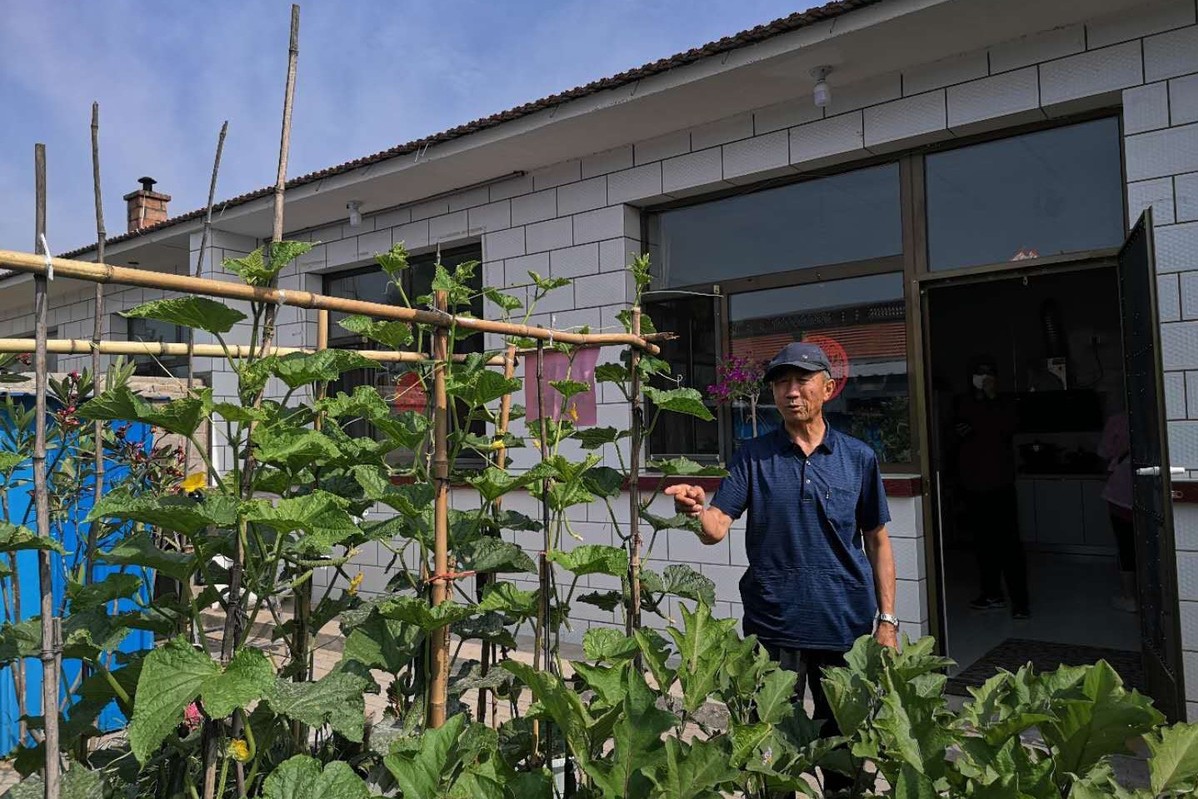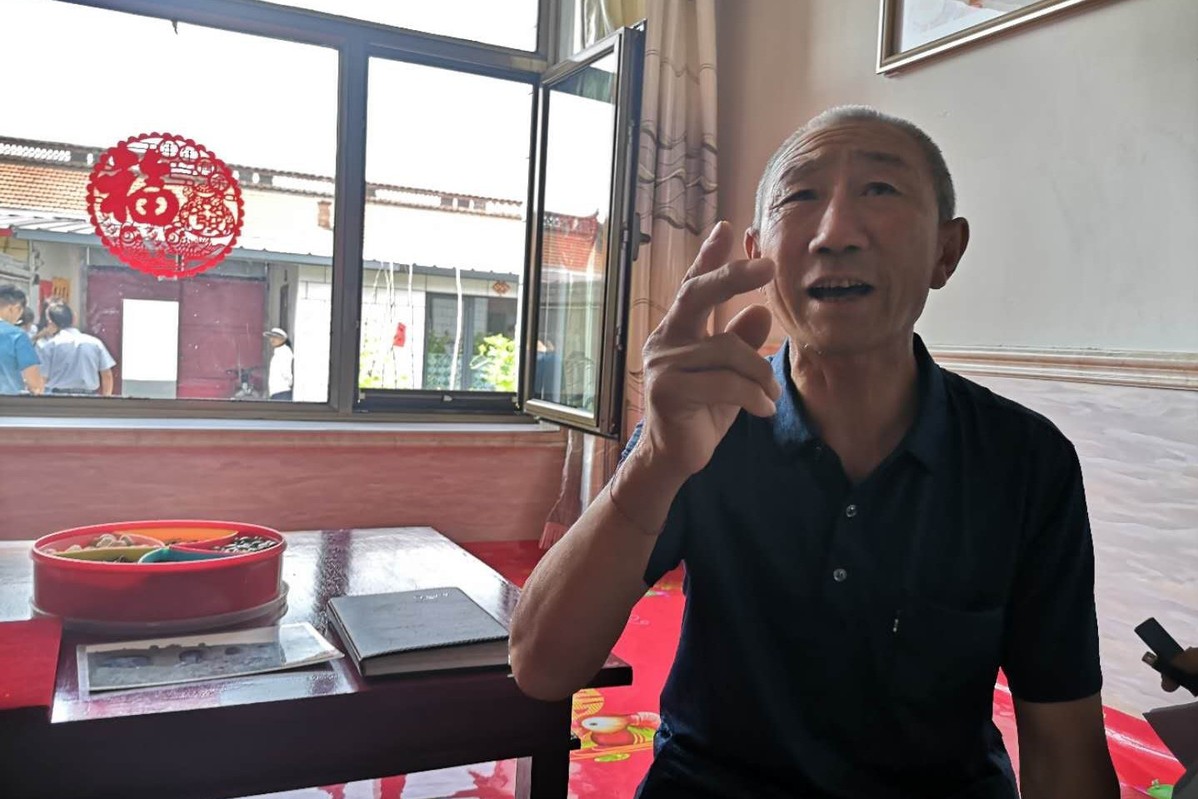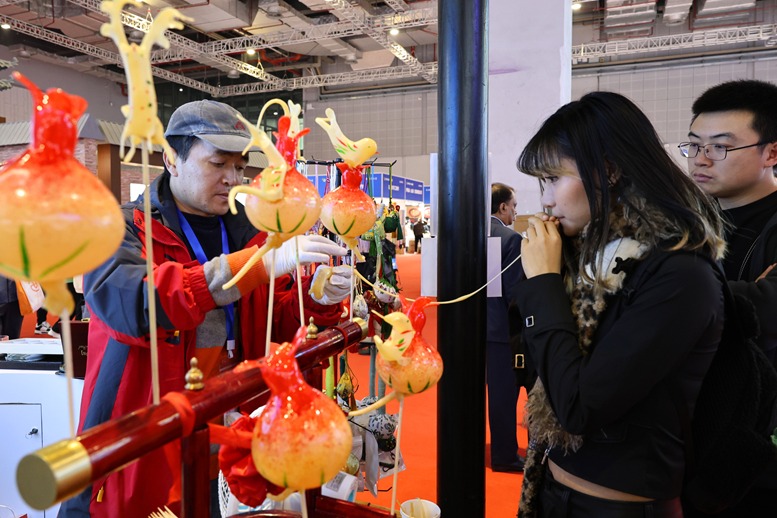Poverty alleviation programs help villager buy his own home


Sixty-seven-year-old farmer Bai Gaoshan still feels thrilled when recalling President Xi Jinping's visit to his house in May.
"We chatted for about 10 minutes. President Xi asked if we had enough food and vegetables, and how we felt about our lives now," Bai said, sitting on the bed of his new, pretty house.
Bai moved to the new house in Fangcheng Xincun village, Datong city in North China's Shanxi province in early 2019. Before that, he lived in a rugged and shabby yaodong or house cave, a form of earth shelter dwelling common in Shanxi.
"You cannot imagine how poor our yaodong is. Each time my son brought a date to our house, their relationship blew off. That happened about 20 times in the past few years," Bai said.
But thanks to the government's supportive policies, Bai's family was able to purchase a house with three rooms and a yard for only about 10,000 yuan ($1,428), which is much lower than the average house price in Yunzhou district, where Fangcheng Xincun village is located.
"Life is much better than before. In addition to a new house, we also have healthcare insurance and accident insurance for free. My son also found a job doing electric equipment maintenance. Now he earns over 5,000 yuan per month," Bai said.
And today Bai's son is married and has a 3-month-old baby.

Bai's family is not the only one that rose above poverty in Fangcheng Xincun village. Founded through the combination of Dafangcheng village and Xizuicun village – two villages in poverty, Fangcheng Xincun has invested about 28.05 million yuan building new houses for residents who used to live in yaodong, and developed citron daylily-related industries, including planting, harvesting, processing, and making daylilies into products with added-value to boost the local economy.
The local government also has stepped up efforts promoting vocational training to unemployed residents, improving infrastructure and insurance systems.




































